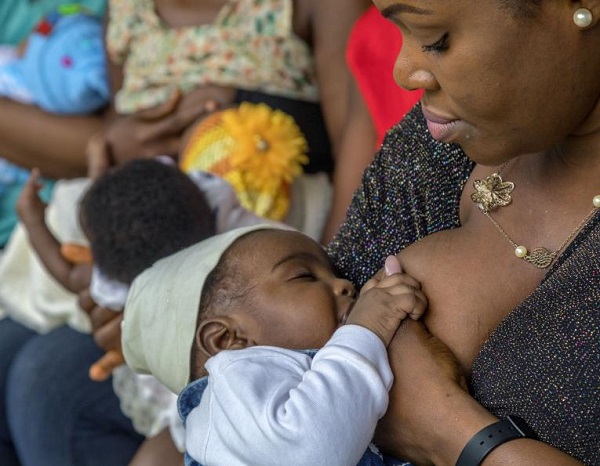
Health experts in Nigeria have expressed confidence that the digitalisation of the country’s health systems will play a crucial role in reducing maternal mortality rates, which remain among the highest in the world.
They shared their views in separate interviews with journalists in Abuja on Friday.
According to the World Health Organisation (WHO), Nigeria accounts for nearly 20 per cent of global maternal deaths, with an estimated 512 maternal deaths per 100,000 live births. Factors contributing to this high rate include delays in accessing quality healthcare, inadequate health infrastructure and poor data management for timely interventions.
However, recent efforts by the Federal Ministry of Health and Social Welfare, led by its minister, Prof. Muhammad Ali Pate, focus on harnessing digital innovations to tackle these challenges and improve maternal health outcomes.
Pate emphasised that digitalisation can transform maternal healthcare by improving real-time data collection, efficient resource allocation and quicker responses to maternal health emergencies.
“Digital health systems enable real-time monitoring of maternal health, allowing early intervention and better coordination of care. This can save countless lives, especially in underserved communities,” he stated.
One such initiative is the e-Motive approach, a digital tool designed to detect and manage postpartum haemorrhage, the leading cause of maternal deaths in Nigeria.
Preliminary data from pilot programs in select states show a 60 per cent reduction in maternal complications when the tool is implemented effectively.
Similarly, mobile health applications like MamaCare are providing pregnant women with timely reminders for antenatal appointments and essential health information.
In addition, telemedicine platforms are bridging the gap between rural communities and specialised healthcare providers in urban centres, reducing delays in accessing critical care.
Speaking on the impact of these digital tools, Dr. Ifeoma Okonkwo, an obstetrician, noted that technology is revolutionising maternal healthcare.
“Early detection of high-risk pregnancies through digital platforms allows us to intervene sooner, preventing complications that often lead to maternal deaths,” she said.
Despite the promising potential, Okonkwo highlighted several challenges that could hinder the full impact of digitalisation on maternal health.
“Poor internet connectivity, especially in rural areas, and limited access to digital devices remain major barriers,” she said.
A report by the National Bureau of Statistics (NBS) revealed that only 35 per cent of primary healthcare centres in Nigeria are equipped with the necessary infrastructure to support digital health solutions.
Additionally, healthcare workers in some regions lack adequate training to effectively use these technologies, which limits their efficiency in delivering digital-based healthcare interventions.
Mrs. Aishatu Ishaka, a community health worker, also raised concerns about the lack of trust in digital health solutions, particularly among women in rural communities.
“Many women still prefer traditional birth attendants and remain sceptical about relying on digital platforms for their healthcare needs,” Ishaka said.
She emphasised that to maximise the benefits of digital health, there must be a comprehensive approach that includes:
Government investments in infrastructure to expand digital access.
Training programmes to equip healthcare workers with digital skills.
Public education campaigns to build trust and confidence in digital tools.
She stressed that collaboration between the government, private sector and local communities is essential to ensuring that digital health solutions are accessible and effective for all Nigerian women.
She further noted that policies must address data privacy and security concerns, ensuring that patient information is protected as digital systems become more integrated into healthcare delivery.
As Nigeria works towards achieving Universal Health Coverage (UHC), experts believe that digitalisation presents a major opportunity to improve maternal health outcomes significantly.
“While challenges remain, the integration of technology into healthcare delivery is already showing positive results,” said a health expert.
“Digital tools alone won’t solve the maternal health crisis, but they are an essential part of the solution. By combining technology with community engagement and strong healthcare systems, we can drastically reduce maternal mortality in Nigeria,” they added.
For many expectant mothers across the country, the hope is that these technological advancements will translate into safer pregnancies and healthier outcomes for both mothers and their babies.

